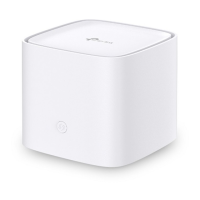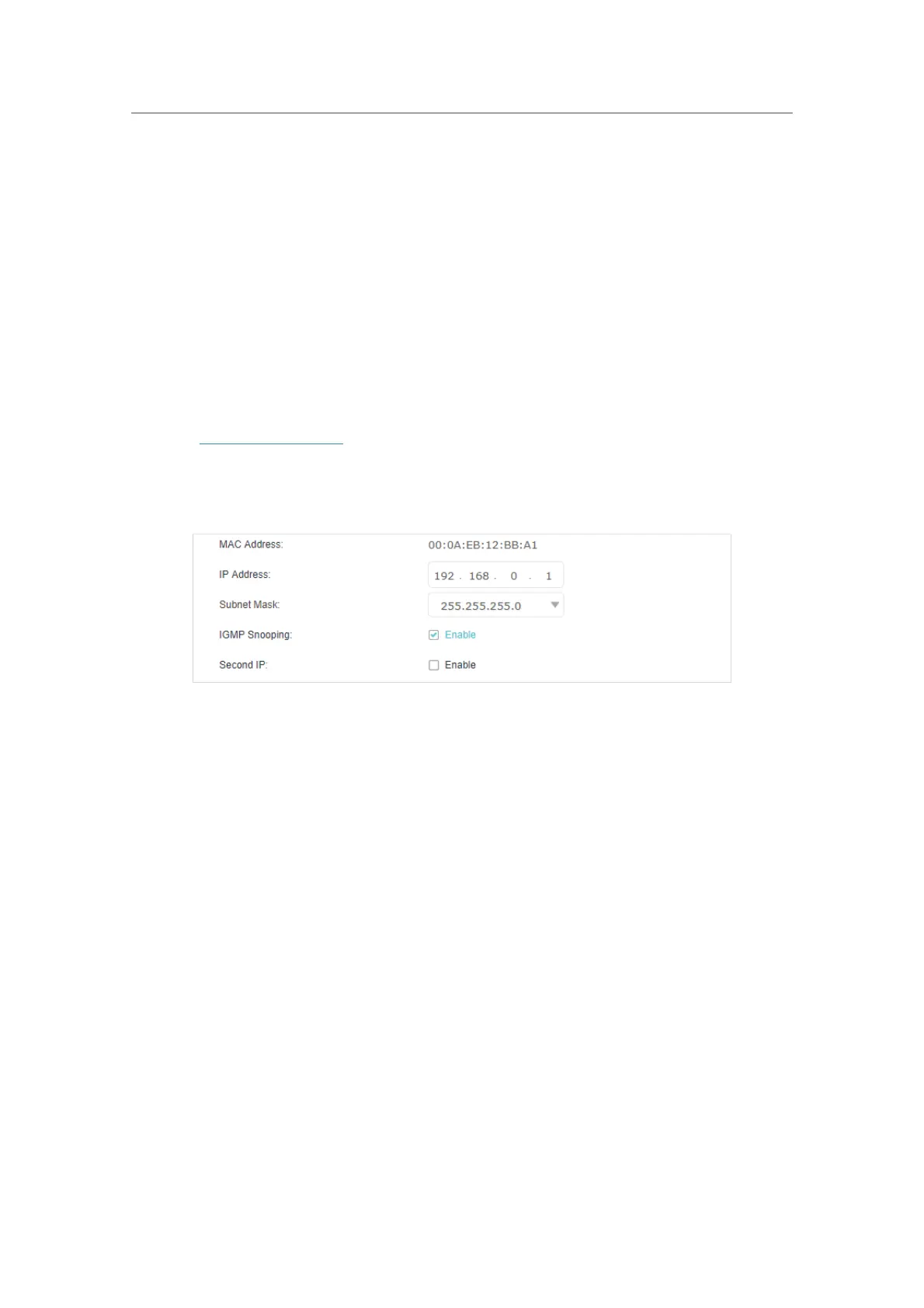56
Chapter 13
Customize Your Network Settings
13. 1. Change LAN Settings
13. 1. 1. Change the LAN IP Address
The controller is preset with a default LAN IP 192.168.0.1 in router mode and three
guest IP address, which you can use to log in to its web management page. The LAN
IP address together with the Subnet Mask also defines the subnet that the connected
devices are on. If the IP address conflicts with another device in your local network or
your network requires a specific IP subnet, you can change it.
Follow the steps below to change your IP address.
1. Visit http://tplinkwifi.net, and log in with the password you set for the controller.
2. Go to Advanced > Network > LAN Settings, and select IPv4.
3. Click the edit icon in the Modify column.
4. Enter a new IP Address appropriate to your needs.
5. Select the Subnet Mask from the drop-down list. The subnet mask together with
the IP address identifies the local IP subnet.
6. Keep IGMP Snooping enabled by default. IGMP snooping is the process of listening
to IGMP (Internet Group Management Protocol) network traffic. The function
prevents hosts on a local network from receiving traffic for a multicast group they
have not explicitly joined.
7. You can configure the controller’s Second IP and Subnet Mask for LAN interface
through which you can also access the web management page.
8. Keep the rest settings as default.
9. Click Save to make the settings effective.
13. 1. 2. Use the Controller as a DHCP Server
You can configure the controller to act as a DHCP server to assign IP addresses to
its clients. To use the DHCP server function of the controller, you must configure all
computers on the LAN to obtain an IP Address automatically.

